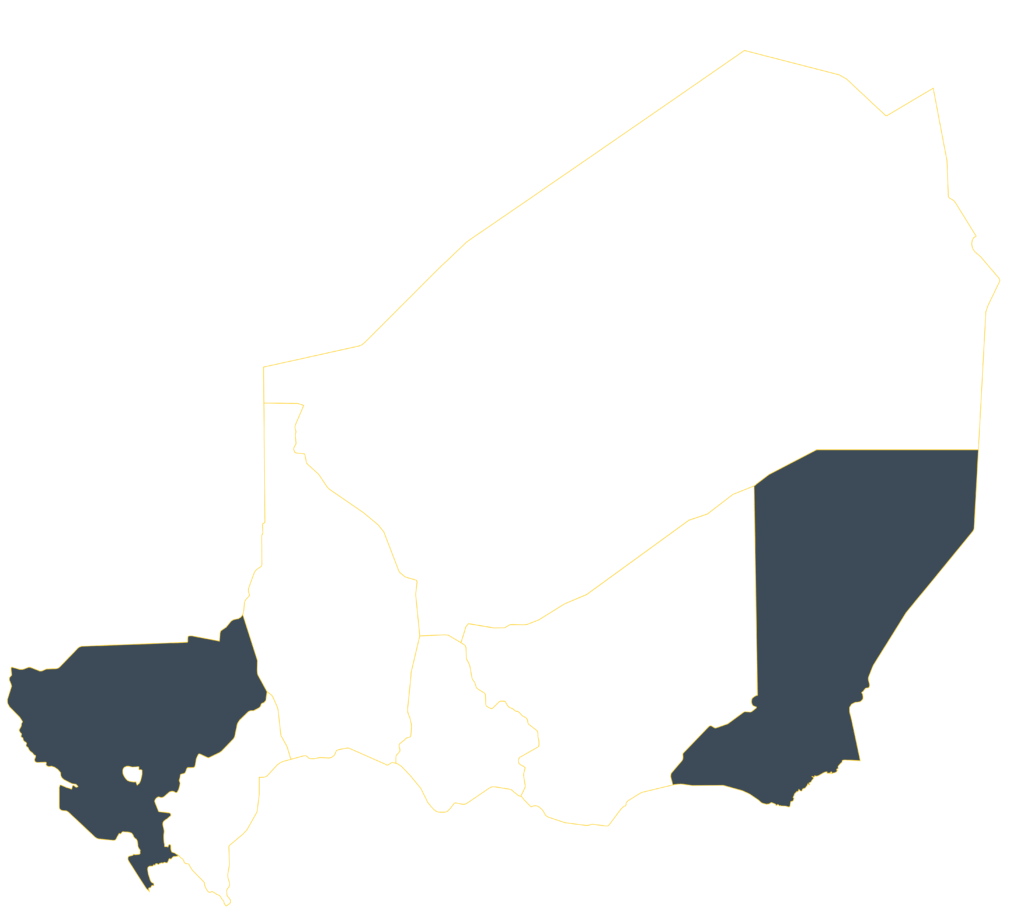NIGER
BACKGROUND AND CONTEXT
The threat of terrorism and violent extremism have worsened in recent decades, become increasingly pronounced in the Central Sahel region of Burkina Faso, Chad, Mali, Mauritania and Niger.
Key drivers of violent extremism in the Sahel include high levels of youth unemployment, recurring farmer-herder conflicts, and persistent governance-related grievances. Terrorist and violent extremist groups exploit these vulnerabilities by promoting narratives of injustice and offering protection in exchange for loyalty, thereby further destabilising already fragile communities. GCERF began investing in the country in 2022 and till date USD 3 million has been invested to address these drivers of violent extremism.
OUR INVESTMENT STRATEGY IN NIGER
GCERF’s investment strategy outlines a comprehensive approach to address the drivers of violent extremism and guides civil society organisations in designing their programmes.
GCERF funds programmes that:
Support the reintegration of repentant youth into public services to counteract stigmatisation and marginalisation, vulnerabilities exploited by violent extremist groups
Expand socio-economic opportunities for women and youth to diminish the appeal of financial incentives often used by violent extremist groups to lure recruits
Establish community dialogue spaces that promote trust, tolerance, and solidarity by facilitating engagement between citizens, local authorities, and defense forces
KEY FIGURES
(cumulative from 2022 to March 2025)
AREAS WHERE WE WORK
Tillaberi and Diffa regions

Newsletter

Sustainable Development Goals

Peace, Justice & Strong Institution
No Poverty

Quality Education

Gender Equality

Decent Work & Economic Growth

Reduced Inequalities

